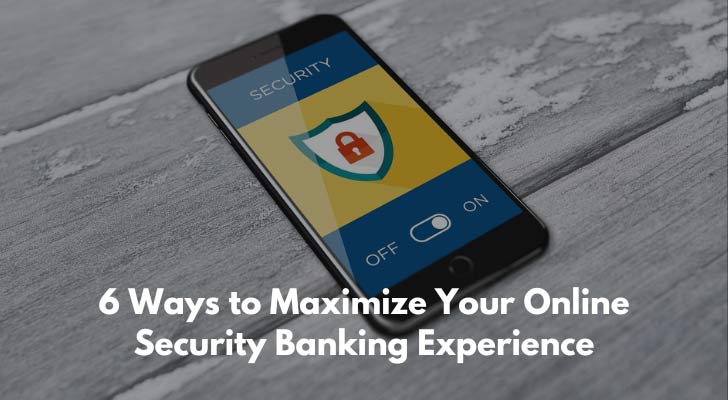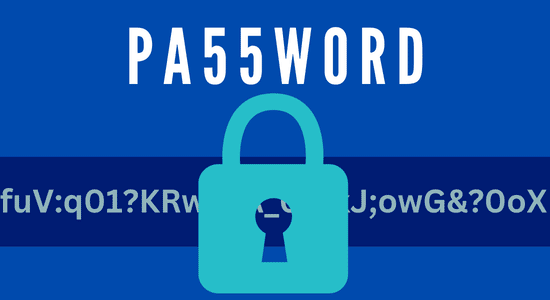Online banking has made banking transactions more convenient. It reduces the wait time in traditional banks and helps people become more productive. In a matter of minutes, you can quickly complete one or two transactions in no time. However, online banking also comes with certain risks, such as hacking and theft, making it not entirely safe.
Fortunately, these threats can be prevented. To help you figure out how, here are seven ways to improve online banking security that you can follow.

#1 Find a Secure Online Bank
Security starts with what type of banking company you plan to transact with. No matter how tempting their offers can be, you must always make your security a deal breaker. There are available online banking services that are easy to break into, which can put your personal information and finances at risk.
The primary reason for this is the platform’s weak security systems. The best thing you can do is to look into popular online banks, especially those traditional institutions because they adhere to the highest standards.
And it’s not just online banking that secures their platforms. There are also online lending platforms like CreditNinja that offer top-notch online security to their users. Thus, users are always at ease in transactions when taking out a loan. In addition to this, you can also look into local credit unions that value their members highly.
#2 Enable Multi-Factor Authentication
Your password helps you protect your account from hackers. Users should use unique passwords to ensure their account security. On top of your unique password, you should enable multi-factor authentication in your online account. As the name suggests, multi-factor authentication heightens your account security, which requires you to pass another layer of authentication to get into your account.
Most online banks offer this type of security to keep their users at ease, and some require you to enable this security manually. Before you start with any transaction in your online bank, it’s best to familiarize yourself with the application or website.
Once you’ve figured out how to enable multi-factor authentication, you’ll be given various options on how you would want it to be. Other banks will call you to verify your login, send you a One-Time-Pin (OTP), require your biometrics, email you for confirmation, and the like.
#3 Make a Habit of Changing your Password Regularly

Again, having a unique password is sometimes insufficient to protect you. Aside from multi-factor authentication, it'd help to consider changing your password regularly. Banks and other financing institutions highly recommend their users do this activity, even after every online transaction, to prevent possible hacking.
It'll help if you make hard-to-guess combinations as your passwords. Try to mix uppercase and lower cases letters with numbers and symbols. Avoid using personal information and important details as your password because these can be easier to guess and are considered weak passwords.
#4 Be Alert With Banking Notifications
Another online banking attribute is that they will always notify you when someone’s trying to log in to your account. Not only that, but they will also alert you when there's a transaction, login attempts, and more. That’s why when you receive a notification from your bank, always read their message.
If you suspect any suspicious activity, contact your bank immediately and take the initial course of action.
Supercharge Your AWeber Account
Take Your Email Marketing To The Next Level With These Powerful Tools
#5 Avoid Public WiFi as Much as Possible
Public WiFi is a wireless connection owned and provided by a contributing group to its customers. It’s usually protected by a password or other secure authentication protocols, but it’s still classified as public WiFi. As long as the connection can be accessed by someone else, your connection has a higher chance of getting hacked by other people.
Rather than making bank transactions with a public WiFi connection, or even public computers, it’s better to use your phone or a secure device and data connection.
#6 Consider Using VPN
In connection with what we discussed above, if using public WiFi is inevitable because of emergencies, you should consider installing a VPN on your device. The Virtual Private Network (VPN) protects you when connecting to public networks. It encrypts the internet traffic and masks your online identity so that third-party users or hackers will have difficulty tracing your online activities and stealing your data.
Popular and reliable VPNs must be purchased online, but they are a good investment to protect you and your finances. Although there is available VPN software that is free and relatively cheaper, it would help if you’re careful and wary about them. Rather than protecting you online, others might just put your device at risk by pretending to be a legitimate VPN. So, when shopping or selecting VPNs, always consider reading reviews online to help you.
Final Thoughts
Online banking is closely similar to traditional banks, except it’s more convenient and accessible. That’s why you must also try to keep your bank account safe. With the seven helpful tips above, you must be able to improve your security on a significant level. Keep in mind that there are steps you must regularly keep tabs on, it may sound like too much work, but it’s always safer than sorry.
What Do You Advocate?
